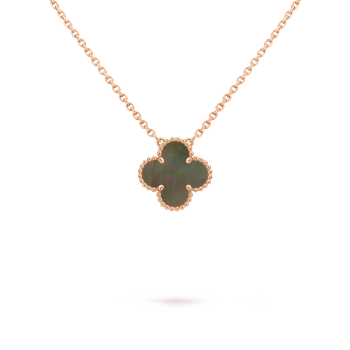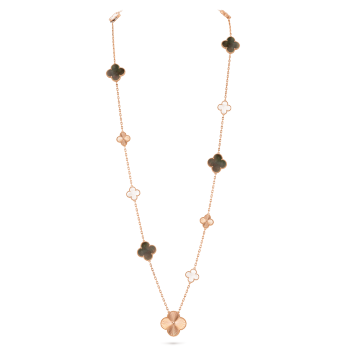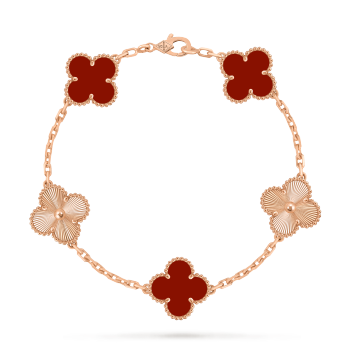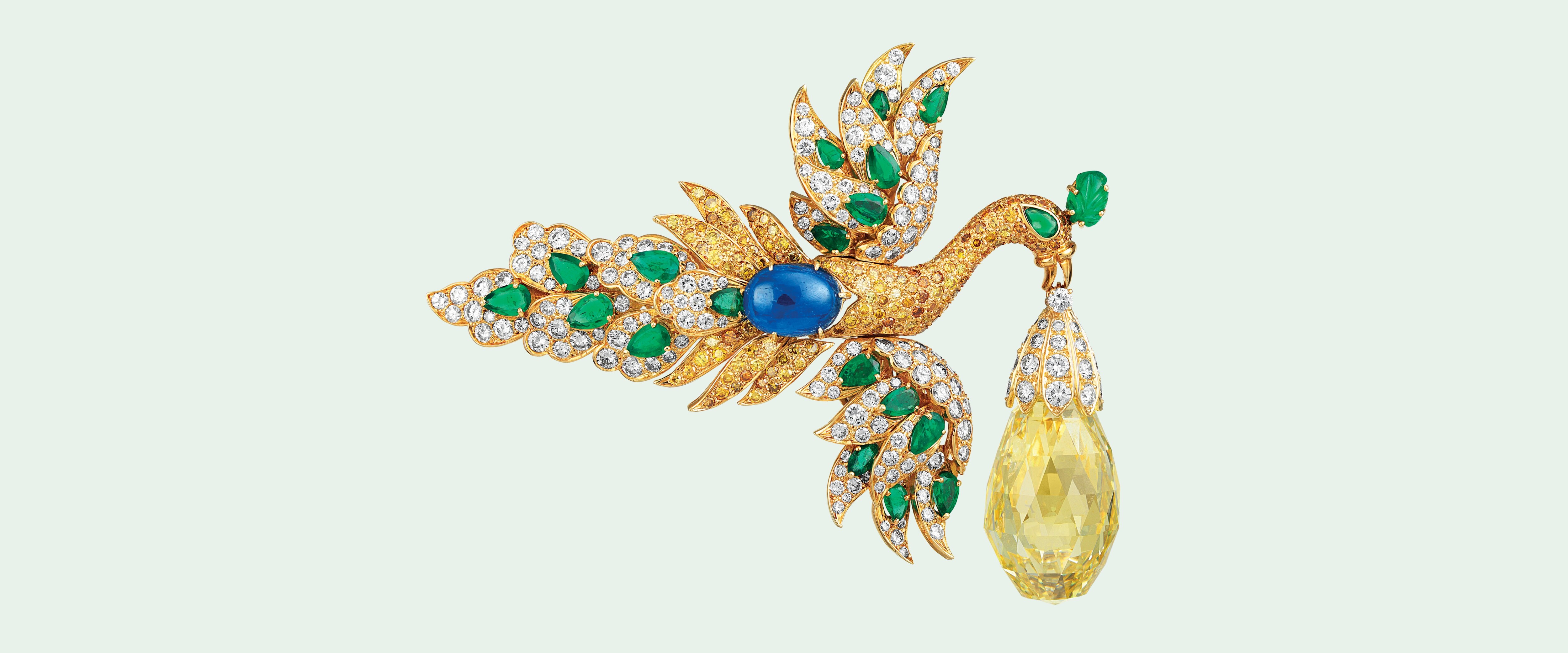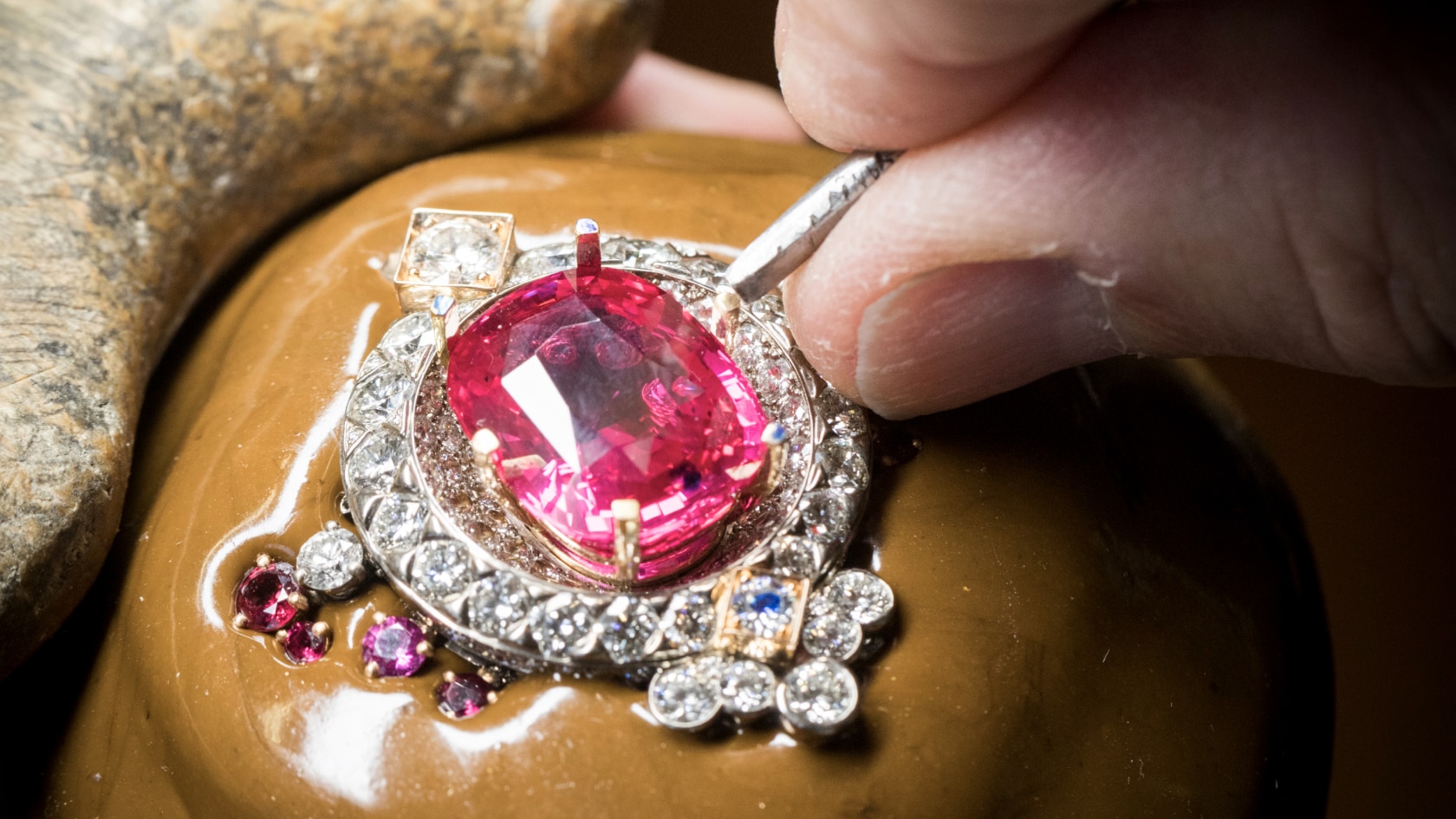Legendary stones
From the beginning, celebrated stones and legendary gems have played a major role in the history of Van Cleef & Arpels. In 1923, the High Jewelry Maison gave pride of place to the spectacular “Prince Edward of York Diamond,” a pear-shaped diamond weighing over 60 carats, mounted in a pendant.
The second generation of the Arpels family entered the picture in the 1930s. Claude, Jacques and Pierre, the sons of Estelle's brother Julien Arpels, carried on this quest for exceptional stones. In 1956, Claude returned from Bombay with the “Neela Ranee,” better known as the “Blue Princess”. This 114.30-carat oval sapphire with its deep, velvety blue hue became the pendant of a necklace
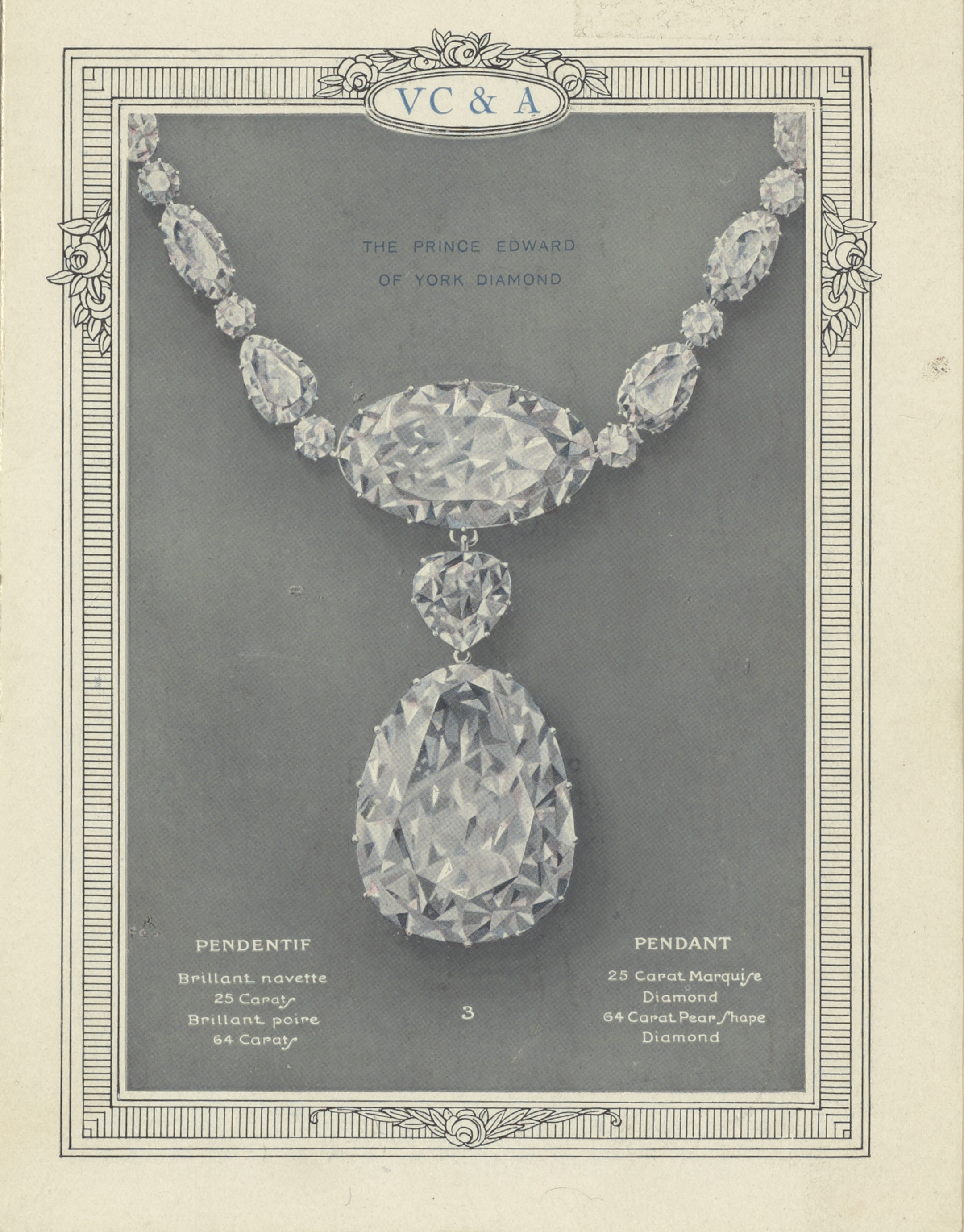
Catalogue featuring the Prince Edward of York diamond, 1920, Van Cleef & Arpels Archives
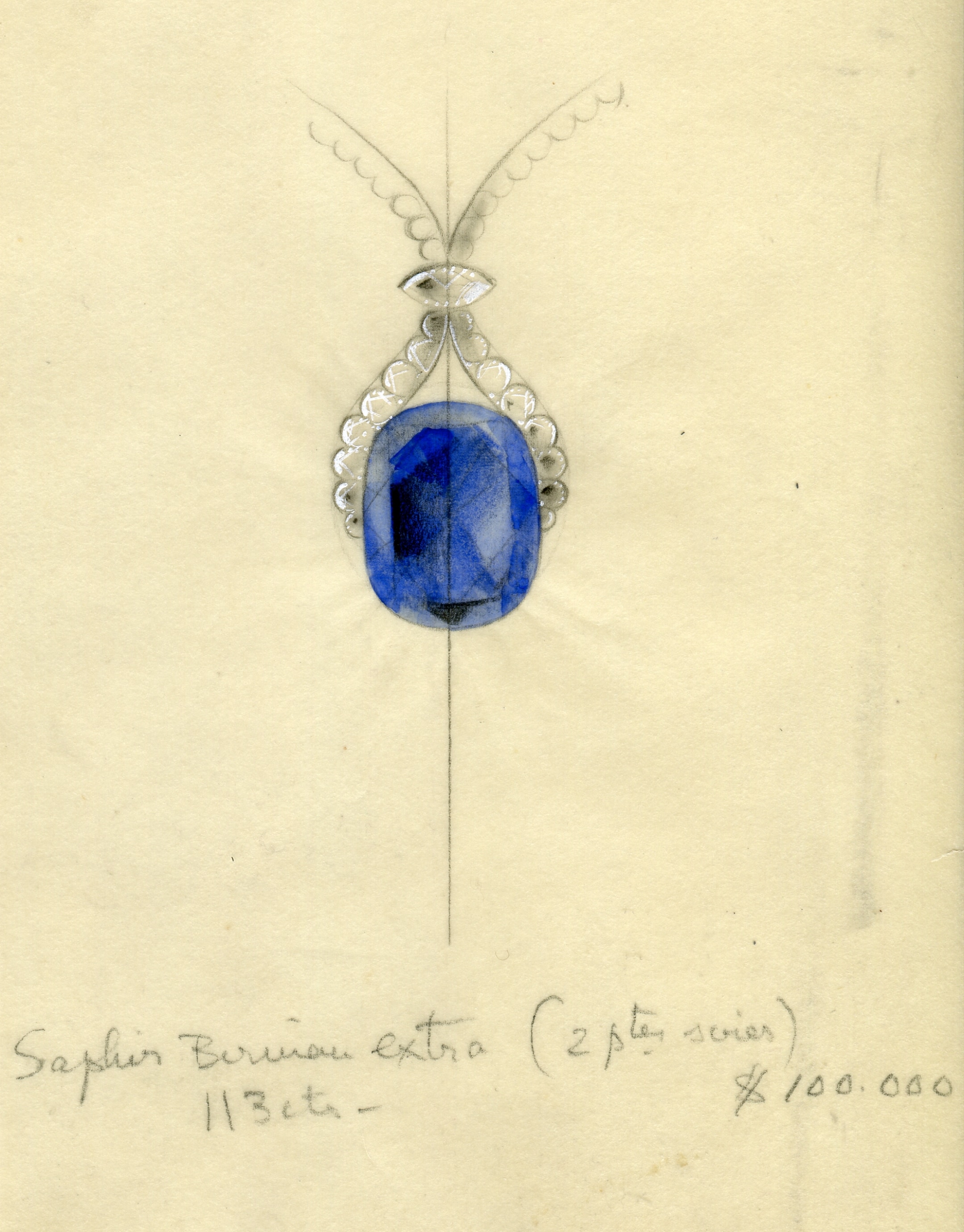
Drawing featuring a project of necklace for the Blue Princess sapphire, circa 1955 Van Cleef & Arpels Archives
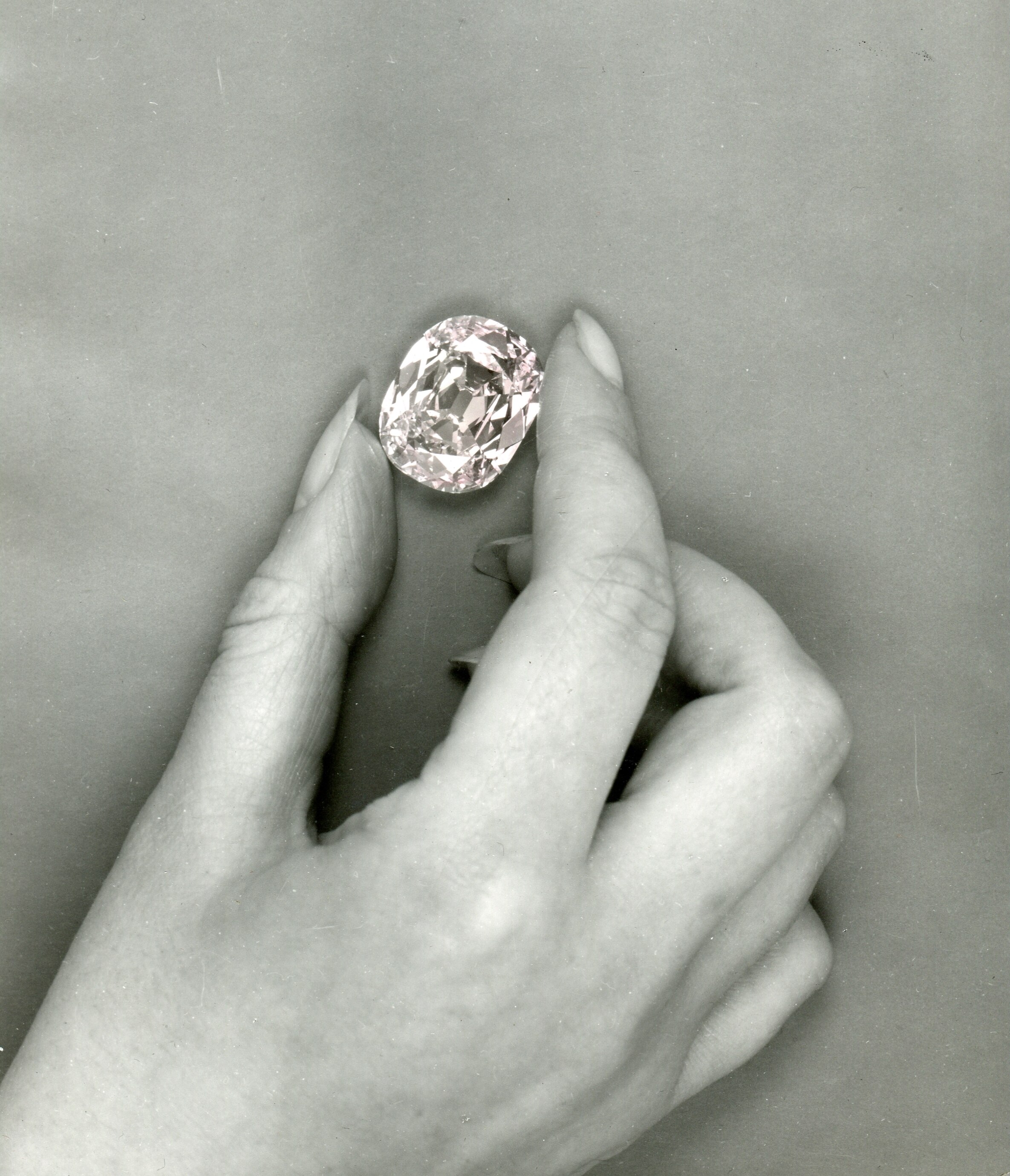
Photography featuring the pink Princie Diamond, named after the son of the Maharani of Baroda, 1960, Van Cleef & Arpels Archives
Before long, another marvel was competing for the attention of uncompromising collectors... In 1960, Jacques Arpels returned from an auction at Sotheby’s in London with a genuine rarity: a 34.64-carat pink diamond from India's ancient Golconda mines. To celebrate the event, the Maison threw a party at the Place Vendôme boutique, with the Maharani of Baroda and her son in attendance: the gem was named the “Princie” in his honor.
In 1971, another stone emerged alongside this legendary pink stone: a yellow diamond of 95 carats, the “Walska Briolette”, known for its tantalizing faceted teardrop cut and named after its former owner, the diva Ganna Walska. Van Cleef & Arpels acquired it at an auction at Sotheby’s in New York and set it on a magnificent bird clip, embellished with emeralds and a sapphire. The same year, the Maison also presented the extraordinary Thibaw ruby, named after its owner, King Thibaw of Burma. Purchased by Jacques Arpels, it was re-cut to a 24.82-carat cushion shape, offering its volume and sparkle to an exceptional ring.
